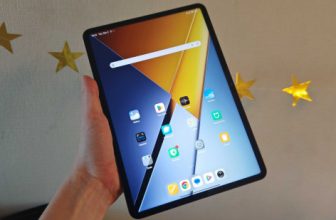
Poco F8 Ultra review – a new premium Android gaming contender
Verdict
![]()
The Poco F8 Ultra is a top-tier premium Android flagship, with the design, performance power, and display to take on the big dogs. It might feel a little weird paying this much money for a Poco phone, considering the brand is synonymous with mid-range devices, but you only have to use it for a few minutes to realize it’s worth every cent.
- Fantastic performance
- Great display and audio
- Bumper battery life and rapid charging
- Stylish design
- No 100W charger in box
- OS takes some getting used to
- Four years software support isn’t a lot
For the longest time, Poco has been one of the most impressive mid-range Android contenders, but now, it’s trying something new. I’m talking about the Poco F8 Ultra, the first true premium flagship from the Xiaomi spin-off brand. It’s a brave call, considering how competitive the market is right now with the likes of the new iPhone 17 and Google Pixel 10, plus the Samsung Galaxy S26 on the way. Still, as I’m going to get into, I think it might be the right call at the right time.
Without ruining too much of the rest of this review, the F8 Ultra feels like a proper flagship and a new dawn for Poco. I’ve reviewed plenty of Poco phones in recent years, and I’ve almost always been impressed, but this feels like a real statement of intent from the growing Chinese brand. The big question, though, is whether it’s impressive enough to take on the top picks from our guide to the best gaming phones. I don’t think the answer will shock you, but let’s get into it.
Why you can trust our advice ✔ At Pocket Tactics, our experts spend days testing games, phones, tech, and services. We always share honest opinions to help you buy the best. Find out how we test.

Price and availability
Following their big reveals, both the Poco F8 Ultra and F8 Pro are now available to preorder. We’ve included all the details in the table below.
| Poco F8 Ultra | Poco F8 Pro | |
| 12GB+256GB | $729 / £749 | $579 / £549 |
| 12GB+512GB | N/A | $629 / £599 |
| 16GB+512GB | $799 / £799 | N/A |
| 12GB+256GB (Early Bird) | $679 / £599 | $529 / £449 |
| 12GB+512GB (Early Bird) | N/A | $579 / £499 |
| 16GB+512GB (Early Bird) | $729 / £649 | N/A |
In terms of colorways, the F8 Ultra comes in either Black or Denim Blue, while the F8 Pro is available in either Titanium Silver, Black, or Blue. For this review, we used the F8 Ultra in Denim Blue with 512GB of storage and 16GB of RAM.
Specs
Here are the Poco F8 Ultra’s and Poco F8 Pro’s specs:
Performance and gaming
I have to start this section by pointing out that the Poco F8 Ultra packs the Snapdragon 8 Elite Gen 5 chip, which is Qualcomm’s newest super-powered mobile processor. That means I went into testing with pretty high expectations. Fortunately, the F8 delivered on all fronts. It takes the everyday, like texting and social media scrolling, in its stride, but once you load up a game, that’s where it really starts to impress.
As always, when it comes to testing out new phones, I first booted up Honkai Star Rail, a relatively demanding mobile game, to put the F8 Ultra through its paces. As I’d anticipated, the phone had no issues when running the game at the highest possible settings, and combined with the monster display, this makes for a great mobile gaming experience.

I’ve been using an old Honor Magic6 Pro for my Android gaming needs for over a year now, mainly due to how lazy I am when it comes to setting up a new device. However, I’m now tempted to make the Poco F8 Ultra my new go-to for playing the best mobile games, and that train of thought should speak for itself in terms of how impressed I am with the performance.
In terms of thermals, the F8 Ultra does a decent job of keeping things from getting too toasty. I knew that I was in for a good time when I managed to download the seemingly endless gigabytes of data needed to run HSR without the phone getting too hot to touch, which hasn’t been the case with every phone I’ve reviewed in the last year or so. It got a little warm when gaming, but never too hot, which is frankly what I anticipated from a phone without some of the mind-boggling cooling tech we’ve seen in recent months.
Features and software
The Poco F8 Ultra comes pre-loaded with Xiaomi’s HyperOS Android skin. It’s still no iOS, which remains the golden standard of mobile operating systems, but Xiaomi has improved its software with every iteration, and the latest version is the most user-friendly so far. There’s still a fair bit of bloatware, though, but fortunately, none of the knock-off mobile games that I almost always have to instantly delete, but cleaning out the apps you don’t need shouldn’t take longer than a couple of minutes.
Like most phones these days, the Poco F8 Ultra has some AI features, including Google Gemini, which is rapidly becoming standard on most Android phones. Outside of Gemini, you’ve also got a suite of Xiaomi HyperAI tools, including a translator, a creative assistant, and a writing bot. It’s a bit no-frills compared to some of what other flagships offer, but it’s also a lot more straightforward, and it doesn’t get in the way if you don’t want to use it.
As for software support, you’re getting four Android updates with the F8 Ultra, which is decent but not as generous as the seven years Samsung and Google Pixel are offering. Honestly, I don’t think it’s a massive deal, as if you’re the sort of person who picks up a new premium phone, you likely have a habit of doing that and will be looking for something new within a couple of years, but it’s something worth keeping in mind.
Design and audio
In terms of the design, I’m much keener on the Poco F8 Ultra than I thought I’d be, especially when I first heard about the Denim Blue variant. Yes, as you can probably guess from the name, the back panel of this phone has a real Bruce Springsteen vibe about it, in that it’s rocking the blue denim.

To my surprise, the denim design looks and feels great, especially if you’re looking for something a bit different from your run-of-the-mill flagship. It might not be for everyone, but I like it. It’s also IP68 rated, which is the gold standard of dust and waterproofing, so you don’t have to worry about using the phone in the rain, or, not that I’ve done it with other IP68 phones or anything, dropping it in the sink while washing up.
While I’ve seen a few brands partner up with camera companies in recent years, such as Xiaomi’s collaboration with Leica and OnePlus teaming up with Hasselblad, Poco has gone in a different direction and worked with audio brand Bose on the F8 Ultra. The result makes for one of the best-sounding phones I’ve ever used, especially when it comes to bass response. The F8 Ultra has a subwoofer, yes, a subwoofer, and you’d be surprised how much more immersive that factor alone makes the mobile gaming experience.
Display
The Poco F8 Ultra boasts a pretty hefty display, 6.9 inches, to be exact. Now, in the past, I’ve said that similarly sized phones feel too big, but I don’t get that with the F8 Ultra. I’m not sure if it’s that ‘Ultra’ bit that makes me expect a bigger phone, creating a sort of placebo effect I’m somehow aware of, but as far as I’m concerned, it’s a great size for gaming and watching content, and given I’m a bit of an introvert, that’s mainly what I use my phone for.

The front panel is an AMOLED display, capable of 120Hz refresh rates. That makes it pretty ideal for gaming, as you’re getting rich colors, deep blacks, and super smooth visuals. There are phones out there with higher refresh rates of 144Hz or 165Hz, but in my experience, things get a bit less noticeable above 120Hz, so I don’t feel like I need anything more to enjoy a bit of Marvel Snap. The screen is also plenty bright, as I found out by playing some more Honkai Star Rail under the blaring winter sun without any issues.
Poco F8 Ultra’s cameras
The Poco F8 Ultra boasts the brand’s most elaborate camera setup to date, with a 50MP main, 50MP telephoto, and 50MP ultra-wide camera system. That’s a pretty competitive offering for the high-end price point, but the proof is in the photography pudding, so I went out to take some snaps and see what sort of results I ended up with. To cut a long story short, I’m impressed. I’m not blown away, but it’s the best yet from Poco.
All the pictures I captured look real-to-life, and I didn’t spot any issues with over-processing, which is surprisingly common even in premium devices. It’s not perfect, as all three cameras suffer a little in low light, even if you’re using night mode, but any shots you take in dark conditions should still be good enough for social media. Just don’t expect the same level of low-light quality that’s on offer from some other flagships, especially those also coming out of China. For an example of the sort of quality we’re talking about, check out the lovely portrait of my dog, Floyd, below.

As for the selfie camera, you’ve got a 32MP lens that is capable of some high-quality selfies. It’s nothing to write home about, but if you compare it to the only other Snapdragon 8 Elite Gen 5-powered phone I’ve checked out so far, the REDMAGIC 11 Pro, it’s a lot better than that, and you’ve got plenty of options to edit your selfies or beautify yourself, though I still find that latter feature can lead to some pretty uncanny valley-type results.
Battery
Much like their Xiaomi siblings, Poco phones often offer some of the best battery life capabilities of the Android contingent, and the F8 Ultra is no different. Even if you’re spending a few hours a day gaming, plus some sporadic use for scrolling or internet browsing, you should get at least a day and a half of battery life out of this phone, if not more. That’s pretty decent considering that the 6,500 mAh battery isn’t massive by 2025 standards, and the Snapdragon chip is pretty power hungry.
When you do eventually run out of battery, it won’t take long to juice back up to full strength, as the F8 Ultra offers 100W wired charging. For context, the iPhone 17 is capable of a maximum of 40W, so you’re getting more than double the speed from this device. Not only that, but you’ve got the option of 50W wireless charging, which is still pretty rapid and can come in handy if you find yourself at a charging station without your USB-C lead.

The one caveat is that you don’t get a 100W charging brick in the box, so if you’ve not got an adapter capable of going that fast, then you’re going to have to either deal with the maximum output of your brick or spring for a new one. Fortunately, I do have a 100W charger to hand, and the charging time impressed me, taking under an hour to juice from flat to full.
Should you buy the Poco F8 Ultra?
The Poco F8 Ultra might be one of the brand’s most expensive phones so far, but it also happens to be one of the best, offering elite performance, a glorious display, and near-unbeatable charging speeds. As I said right at the start of this review, this phone feels like an out-and-out premium flagship, and it’s still cheaper than a lot of the high-end alternatives from the likes of Samsung, Google Pixel, and others.
I’d usually use this paragraph right here for caveats or drawbacks, but honestly, I’m struggling to think of many. My main issue is the lack of 100W charger in the box. If you’re going to offer those sorts of speeds and launch a phone at this sort of price point, I’d expect the adapter to come with the phone. It’s also worth mentioning that the Xiaomi operating system takes a bit of getting used to, especially if you’re coming from iOS, but it’s by no means bad. I just wish the ads in some of the pre-installed apps weren’t so invasive.
Alternatives
If we haven’t sold you on the new Poco F8 Ultra, check out our suggestions for alternatives below.
iPhone 17
This is a pretty obvious pick, but if you don’t think the F8 Ultra is the one for you, the iPhone 17 is likely the most sensible option to go for instead. While it’s not quite as impressive in terms of battery life or charging, it’s still a great flagship, and the jump to a 120Hz ProMotion display offers a noticeable upgrade over the iPhone 16 in terms of on-screen visuals. Plus, the iPhone gives you access to the ever-growing library of Apple Arcade games, which is a big perk in my book.
REDMAGIC 11 Pro
While the F8 Ultra is certainly no slouch in the performance department, the REDMAGIC 11 Pro might still be a better pick for gamers, thanks to its shoulder trigger buttons and Game Space launcher app. The only issue with the 11 Pro is its slightly subpar selfie camera, but outside of that, it’s another flagship that shows some of the big-name Android competitors – I’m looking at you, Samsung – how it’s done. For more details, check out our REDMAGIC 11 Pro review.






